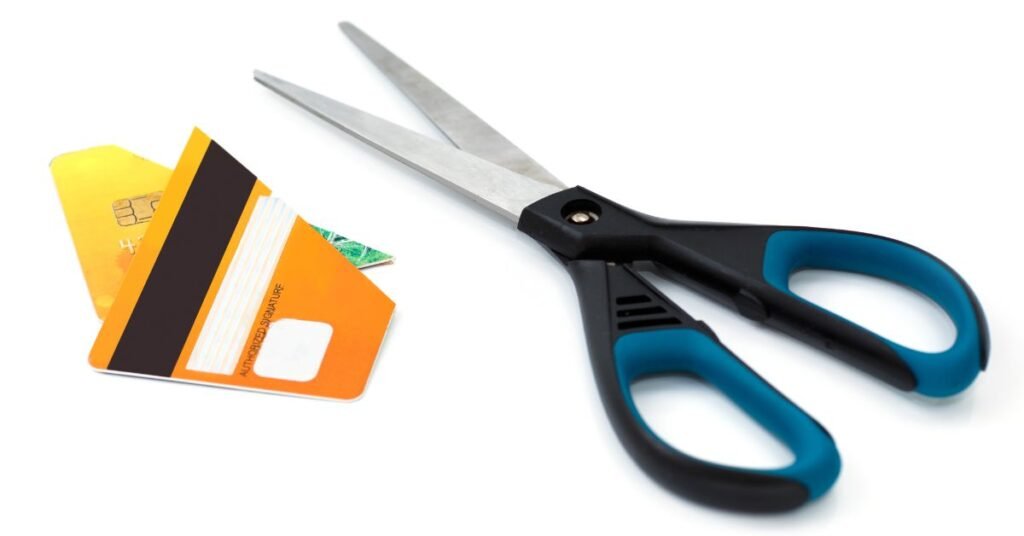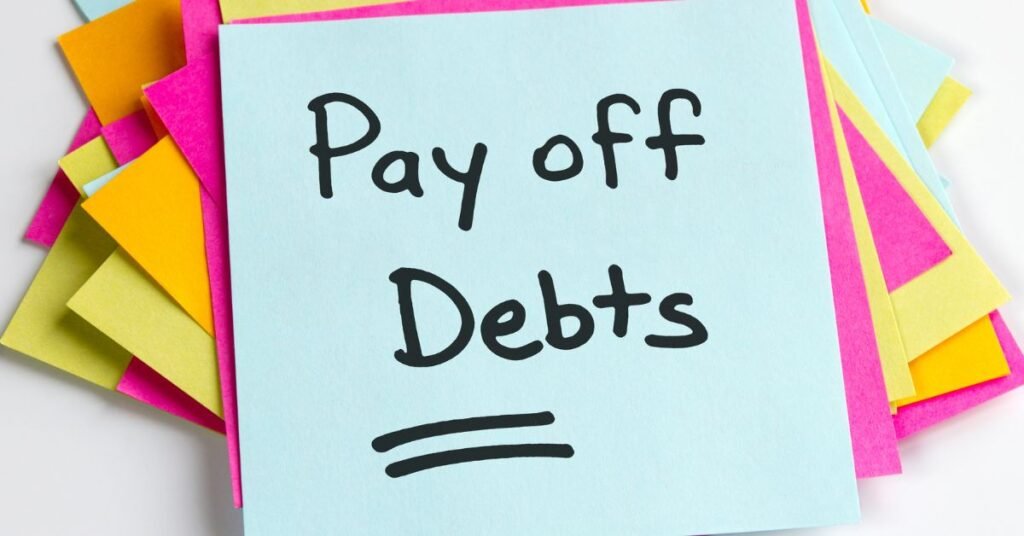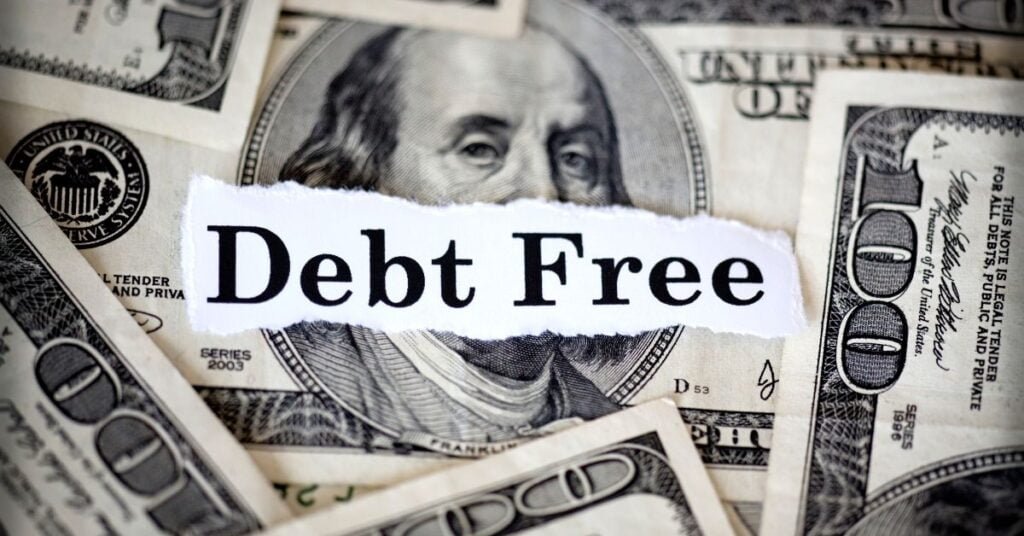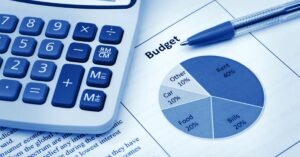Last Updated on 31 March 2024
Growing up, I never really learned much about managing money. So, when I got my first credit card in college, I didn’t realize the consequences of overspending. Before I knew it, I was drowning in debt. For years, I struggled to keep up with minimum payments, constantly worrying about how I would dig myself out of this financial hole. It felt like I was stuck in a never-ending cycle, and the stress was overwhelming.
One day, I decided enough was enough and asked myself, “How do I get out of debt fast?”. I committed myself to tackling my debt and regaining control of my finances. It wasn’t easy, but I slowly progressed with determination and a solid plan. I began by creating a budget to track my expenses and identify areas where I could cut back. I made sacrifices, like cooking at home instead of eating out and canceling unnecessary subscriptions. Every extra dollar I saved went towards paying off my debt.
I also sought guidance from financial experts. I learned about different debt repayment strategies and ways to negotiate with creditors to lower interest rates. Armed with this knowledge, I developed a plan of attack and adhered to it religiously. Over time, I watched as my debt gradually dwindled. It was a slow process, but every small victory fueled my determination to keep going. Finally, after years of hard work and perseverance, I became debt-free.
My experience inspired me to pursue a certification in financial planning to help others facing similar struggles. As a financial advisor, I am passionate about empowering women to take control of their finances and break free from debt. I know firsthand how overwhelming it can feel to be in debt, but I also know it is possible to overcome it with the proper support and guidance. My mission is to help other women realize that they have the power to change their financial futures and achieve financial freedom. Together, we can conquer debt and build a brighter tomorrow.
If you are feeling overwhelmed by debt and wondering how to get out of it fast, you are not alone. The burden of debt can be stressful, both financially and emotionally. However, there are effective strategies and innovative ways to eliminate debt quickly and regain control of your finances. In this article, we will explore practical solutions, including tips from the Federal Reserve Bank of New York, that can help you get out of debt as quickly as possible.
Practical Strategies to Eliminate Debt Quickly
Several vital strategies can significantly improve your ability to get out of debt quickly. By prioritizing debts with the highest interest rates, implementing the debt snowball or avalanche method, allocating unexpected income to debt repayment, trimming non-essential expenses, and considering freelancing or part-time jobs, you can accelerate your journey toward debt freedom.
Prioritize Debts with the Highest Interest Rates
One of the most effective ways to eliminate debt quickly is by prioritizing debts with the highest interest rates. This strategy allows you to save money in the long run by paying off the most expensive debt first. Start by listing all your debts, including the type of debt, lender, total balance, interest rate, and monthly payment. Focus on paying off the debt with the highest interest rate while making minimum payments on the rest. Once the debt with the highest interest rate is paid off, move on to the balance with the next highest rate and continue until all debts are cleared.
Implement the Snowball Method for Small Wins
Another effective strategy to eliminate debt quickly is by implementing the snowball method. This method involves paying off the smallest balances first, regardless of the interest rate, to create a sense of accomplishment and motivation. Here’s how you can use the snowball method:
- List all your debts from smallest to most significant balance
- Make minimum payments on all debts, except the smallest one
- Put any extra funds towards paying off the smallest debt
- Once the smallest debt is paid off, roll the payment amount into the next smallest debt
- Repeat this process until all debts are paid off
The snowball method allows you to experience small wins, boosting your motivation and momentum towards becoming debt-free.

Allocate Unexpected Income to Debt Repayment
If you come across unexpected income such as tax refunds, inheritances, or refunds from overpayments, consider allocating these funds towards your debt repayment. Instead of using this money for discretionary expenses or splurging on unnecessary items, use it to make a significant dent in your debt. By putting extra money towards your debt, you can accelerate the repayment process and reduce the overall interest costs. This proactive approach will help you make faster progress in eliminating debt and achieving financial freedom.
Trim Non-Essential Expenses to Free Up More Funds
Trimming non-essential expenses is a crucial step in getting out of debt fast. By reducing your discretionary spending, you can free up more funds for your debt payments. Here are some ways you can cut down on non-essential expenses:
- Create a realistic budget and stick to it
- Cut back on eating out and cook meals at home
- Cancel unnecessary subscriptions or memberships
- Limit entertainment expenses and find free or low-cost alternatives
- Shop smart and avoid impulse purchases
By making these small changes and redirecting the money saved towards your debt payments, you can significantly progress in reducing your overall debt and getting closer to financial freedom.
Consider Freelancing or Part-Time Jobs for Extra Cash
In addition to cutting expenses, consider exploring freelancing or part-time job opportunities to earn extra cash for debt repayment. By doing additional work, you can increase your income and accelerate your debt payoff journey. Here are some options to consider:
- Freelancing in your area of expertise
- Taking on part-time jobs in your spare time
- Starting a side hustle based on your skills or hobbies
The extra income earned from freelance work or part-time jobs can be directly allocated towards your debt payments, helping you get out of debt faster and achieve your financial goals.
Innovative Ways to Reduce Your Debt Burden
In addition to the practical strategies mentioned earlier, there are innovative ways to reduce your debt burden and accelerate your journey toward debt freedom. By exploring options such as negotiating lower interest rates with creditors, debt consolidation, utilizing balance transfer credit cards, leveraging home equity, and selling unnecessary assets, you can optimize your debt repayment process and break the cycle of debt. By using debt consolidation wisely, you can lower your overall interest rate and reduce the cost and time it takes to become debt-free. However, it is essential not to let one form of debt relief turn into new debt problems, such as when resetting your credit limits leads to racking up more debt.
Negotiate Lower Interest Rates with Creditors
If you are struggling with high-interest credit card debt, consider negotiating with your creditors to lower your interest rates. Contact your credit card company and explain your financial situation. Sometimes, they may be willing to reduce your interest rate to help you manage your debt more effectively. This can significantly reduce your interest over time, allowing you to pay off your credit card bills faster. Remember to be persistent and advocate for yourself when negotiating with creditors.
Explore Debt Consolidation Options
Debt consolidation is another innovative way to reduce your debt burden. This involves combining multiple debts into a new loan with a lower interest rate. Here are some debt consolidation options to consider:

- Personal loans: You can apply for a loan to pay off your debts. This can simplify your repayment process and potentially lower your interest rate.
- Balance transfer credit cards: Some credit card companies offer promotional balance transfer rates, allowing you to transfer your existing credit card balances to a new card with a lower interest rate for a specific period.
Before opting for debt consolidation, it is important to carefully compare interest rates, repayment terms, and any associated fees. Here’s a table summarizing some popular debt consolidation options:
Consolidating your debts into a single loan or balance transfer credit card can simplify your repayment process and save you money on interest.
Leverage Balance Transfer Credit Cards
If you have multiple credit card balances with high-interest rates, a balance transfer credit card can be an effective option for reducing your debt burden. These credit cards allow you to transfer your existing balances to a new card with a lower or 0% introductory interest rate for a specific promotional period. By taking advantage of this promotional period, you can save money on interest and pay off your debt faster. However, it is essential to carefully read the terms and conditions, including any balance transfer fees and the duration of the promotional period, to ensure that this option suits your situation.
Utilize Home Equity for High-Interest Debt
If you own a home and have accumulated high-interest debt, utilizing your home equity can be an innovative way to reduce your debt burden. Home equity is the difference between the market value of your home and the outstanding balance on your mortgage. By taking out a home equity loan or line of credit, you can use the funds to pay off high-interest debt, such as credit card balances or personal loans. This can help lower overall debt and interest costs while providing a structured repayment plan through a debt consolidation loan. However, it’s crucial to consider the risks and potential consequences of using your home equity for debt consolidation.
Sell Unnecessary Assets to Pay Off Debt
If you have unnecessary assets that can be liquidated, consider selling them to generate extra money for debt repayment. This could include electronics, furniture, jewelry, or even a second vehicle. By selling these assets, you can quickly accumulate funds to pay off your debt more aggressively. Additionally, this can help declutter your life and provide a fresh start towards a debt-free future. Make sure to research the value of the items you plan to sell and utilize online platforms, local classifieds, or consignment stores to maximize your selling potential.
Transforming Your Mindset and Habits for Financial Freedom
Eliminating debt involves more than just implementing strategies and tactics. It requires a transformation of mindset and habits to ensure long-term financial freedom. By adopting a budget, embracing a minimalist lifestyle, setting clear financial goals, educating yourself on personal finance management, and surrounding yourself with financially responsible people, you can establish a solid foundation for a debt-free future. These habits and mindset shifts will not only help you get out of debt but also maintain financial stability and make informed financial decisions in the future.
Create a Realistic and Sustainable Budget
Creating a realistic and sustainable budget is a crucial step towards breaking the debt cycle and achieving financial freedom. Start by evaluating your income and expenses and prioritizing debt payments within your budget. Consider your spending habits and identify areas where you can cut back to free up more funds for debt repayment. Set a realistic monthly payment goal that aligns with your financial situation. By sticking to a budget and consistently making debt payments, you can break the cycle and significantly progress in reducing your debt and improving your financial health.
Adopt a Minimalist Lifestyle to Curb Spending
Adopting a minimalist lifestyle can be a powerful tool in curbing unnecessary spending and accelerating your debt payoff journey. Embrace the philosophy of living with less and focus on the things that truly bring value and joy to your life. Evaluate your spending habits and identify non-essential expenses that can be eliminated or reduced. By cutting back on unnecessary purchases and embracing a simpler lifestyle, such as paying with cash or a debit card instead of credit, you can allocate more funds towards debt repayment and achieve financial freedom more quickly.
Set Clear Financial Goals and Review Them Regularly
Setting clear financial goals is essential for staying motivated and focused on your journey towards debt freedom. Define specific and achievable goals, such as paying off a certain amount of debt within a specific timeframe. Regularly review and reassess your goals to track your progress and make any necessary adjustments. Celebrate milestones to maintain motivation and keep your sights set on the ultimate goal of becoming debt-free. By setting clear financial goals and consistently reviewing them, you can stay on track and make meaningful progress toward your desired financial future.
Educate Yourself on Personal Finance Management
Educating yourself on personal finance management is crucial for long-term financial success and debt elimination. Take the time to learn about budgeting, debt management, investing, and other important financial topics. Equip yourself with the knowledge and skills needed to make informed financial decisions. Numerous resources are available, such as books, podcasts, online courses, and financial literacy programs. By continually educating yourself on personal finance, you can navigate financial challenges, overcome financial hardships, and achieve lasting financial freedom.
Surround Yourself with Financially Responsible People
Surrounding yourself with financially responsible people can have a positive impact on your financial habits and mindset. Seek out friends, family members, or mentors who have achieved economic success and are knowledgeable about personal finance. Engage in conversations about money, share experiences, and learn from their insights and strategies. By surrounding yourself with financially responsible individuals, you can gain valuable advice and motivation to stay on track with your debt-elimination journey. Their support and guidance can provide the encouragement and accountability you need to achieve debt freedom and build a solid financial foundation.
How Do I Get Out of Debt Fast?
Getting out of debt fast requires strategic planning and a shift in mindset. Prioritize high-interest debts, embrace the snowball method, and explore additional income sources. Negotiate with creditors, consider debt consolidation, and trim unnecessary expenses. Transform your habits for financial freedom by setting realistic goals and educating yourself on personal finance. The journey demands discipline and determination but leads to long-term economic stability.
If you have a low income, reading some of our related articles can help you learn the best way to budget. Remember, small steps today lead to significant progress tomorrow. Take control of your finances and pave the way to a debt-free future!









